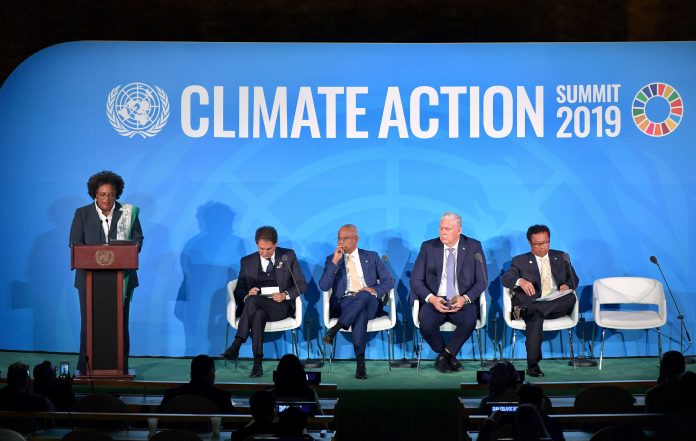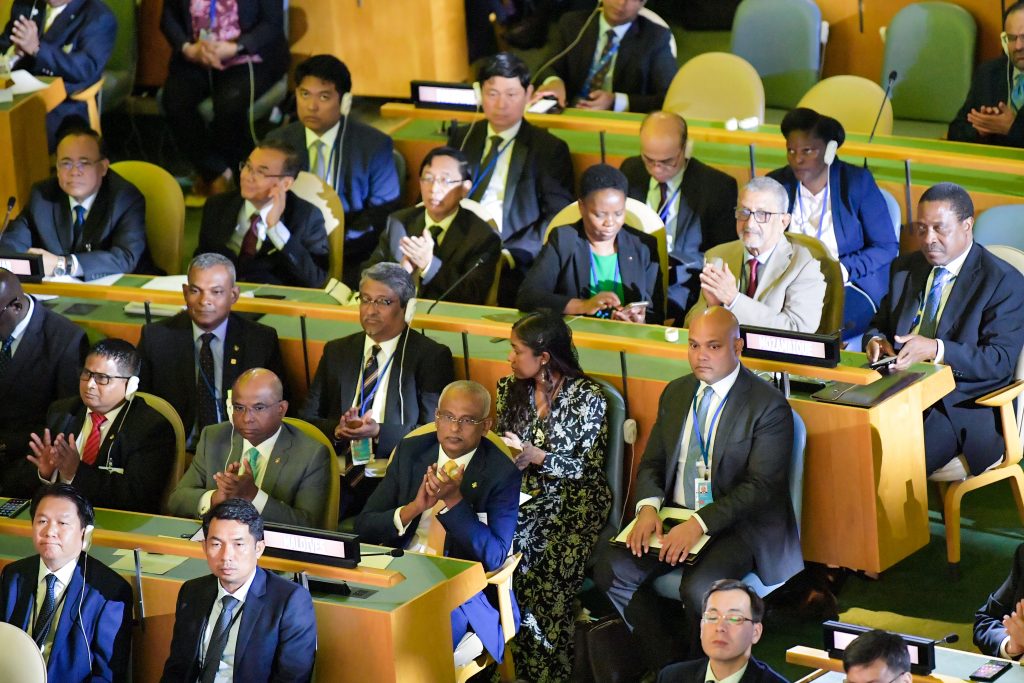
President Ibrahim Mohamed Solih has presented the Maldivian ‘Climate Smart Resilient Islands Initiative’ as a replicable solution to combat climate change and provide sustainable development for Small Island Developing States (SIDS). The President presented the model at the Climate Action Summit held today in New York, an event that is part of the ongoing 74th Annual Session of the United Nations General Assembly.
The Climate Action Summit hosted by the United Nations Secretary-General Antonio Guterres invites leaders of UN Member States to propose their ideas on the most effective ways to implement the provisions of the Paris Agreement on Climate Change and to collectively realize the Sustainable Development Goals (SDGs).
The Maldives’ model, ‘Climate Smart Resilient Islands Initiative’, encompasses a holistic set of pragmatic and feasible measures for the resilience of SIDS to the adverse impacts of climate change.
“This plan outlines my vision for the Maldivian people; the pledges are realistic and achievable, and prioritize building a sustainable society in harmony with our fragile ecosystem,” President Solih highlighted in his remarks.
The President also shared details on how SIDS can best meet the challenges posed by climate change, formulated with the input and support from fellow AOSIS members and SIDS. He explained important milestones to be accomplished and the steps to take towards achieving those milestones through sustainable and eco-friendly methods.
“We intend to conserve eco-rich areas, phase-out single-use plastics, and rapid transit to renewable energy in the transportation and tourism sectors,” He said.

The President prefaced and ended his remarks by reiterating to the International Community the urgency and severity of the threat posed by climate change, appealing to them to do their due diligence to save our planet.
“I call upon other SIDS to replicate our model to achieve a post-carbon economy and climate-smart development pathway that will, in turn, safeguard our people from climate associated risks in the future.”
The Climate Smart Resilient Islands Initiative focuses on achieving environment-related targets in eleven key areas, including the designation of environmentally protected areas; installation of new technology; establishing inter-island connectivity; safeguarding food and water security; promoting green tourism; ensuring climate-resilient infrastructure; transitioning to renewable energy; and sustainable waste management, among others.












